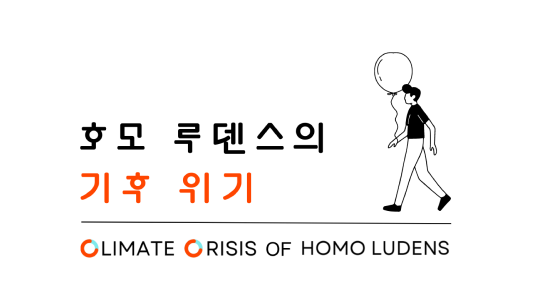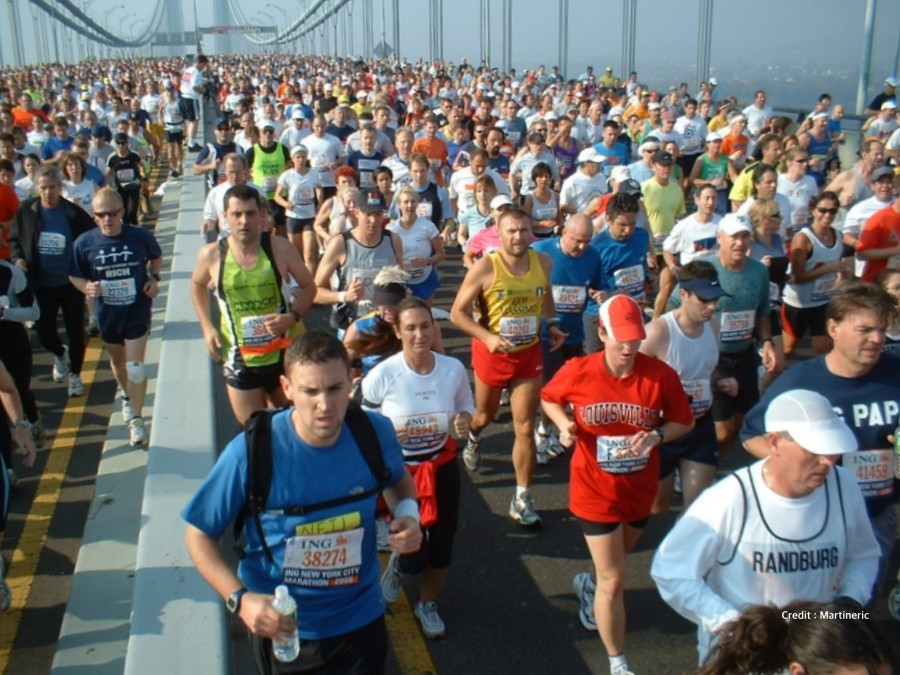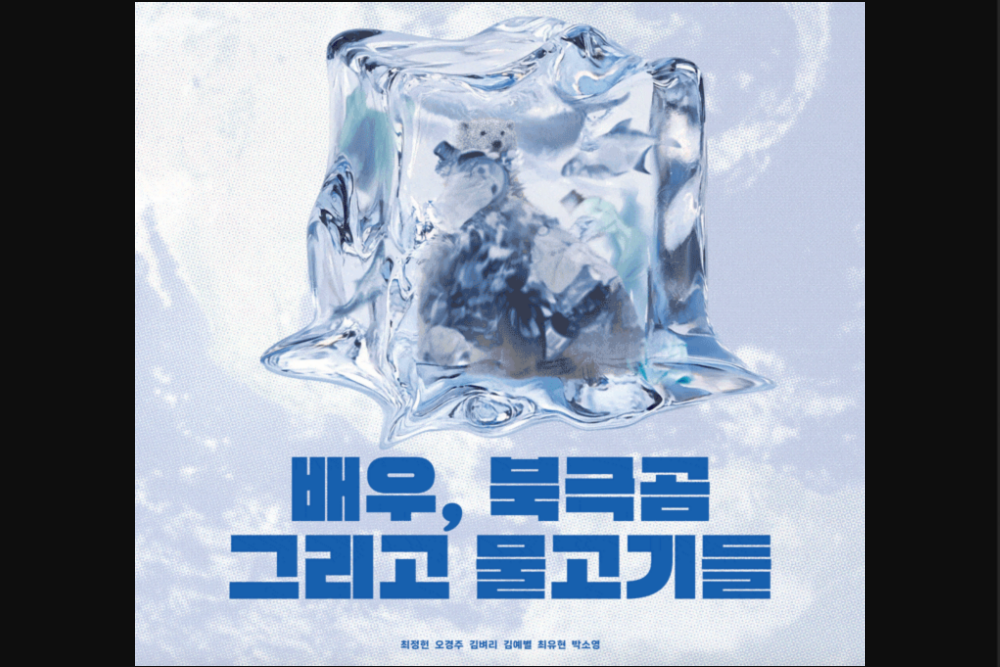This article is based on an interview with Dayeon Lee, an activist from KPOP 4 PLANET.

Among the four areas—albums/merchandise, world tour performances, streaming, and costumes—which do you think requires the most urgent carbon reduction? And why do you think so?
All four areas have serious carbon emissions, making it difficult to single out one as more problematic than the others. That’s why KPOP 4 PLANET (hereafter K4P) has addressed each of them through various campaigns. However, the issue we find particularly severe—and are currently focusing on through a long-term campaign—is the overproduction of albums. K4P also ran a campaign on this issue back in 2021, but since we felt the problem hadn’t been fundamentally addressed, we’ve decided to launch a more in-depth campaign with the same goal.
Why do you feel that the issue of album overproduction has not been fundamentally resolved?
We ran related campaigns for about two years starting in 2021, during which we held forums at the National Assembly, submitted petitions, and organized performances using albums donated by K-pop fans. As a result, we even received a phone call from a representative at HYBE, who acknowledged fans’ concerns and said they were making efforts to address them. Since then, we’ve seen some notable changes—major entertainment companies have started publishing ESG reports. For example, JYP pledged to join Korea’s version of RE100, YG and SM released albums made with eco-friendly materials, and HYBE significantly reduced physical album waste by releasing platform albums. However, these actions have largely been one-off events. Because companies continue to sell traditional physical albums that generate high carbon emissions alongside these initiatives, we don’t feel the issue has been fundamentally resolved.
One of the main reasons plastic albums are excessively consumed is the culture in which fans purchase far more albums than necessary to support their favorite artists’ careers and other related goals. Since K4P’s campaigns are led by fans themselves, we feel that approaching the issue from that angle requires caution.
When running campaigns, K4P places the highest priority on respecting the sentiments of fans. We approach issues with great care to avoid backlash whenever possible. That’s why the main message of our plastic album campaign is intentionally framed not as ‘fans should stop buying albums because album waste is a serious problem,’ but rather as ‘entertainment companies are to blame for the marketing tactics that push fans into overconsumption.’ We strive to hold the producers accountable, rather than placing the blame on consumers.
Since album sales are directly tied to entertainment companies’ profits, it might be difficult to drive meaningful change. How do you foresee the outcome of the ‘The Sin of Plastic Albums’ campaign?
It hasn’t been easy to run this campaign. At first, we tried to focus on the randomness of photo cards—one of the main reasons fans end up buying excessive numbers of albums—and highlight the issue as a form of gambling. But legally, that argument didn’t hold up. Much like the Pokémon bread craze, even though consumers are primarily buying albums to get the photo cards, companies can simply argue that the album is the main product and the photo card is just an extra. It gave us the impression that they’re exploiting legal grey areas to bundle photo cards with albums. There are many such longstanding structural issues and legal barriers, which is why this campaign might end up being a long-term project—potentially lasting over five years, unlike our previous efforts. For now, we’re preparing for the fifth session of the Intergovernmental Negotiating Committee (INC-5) for a UN plastic treaty, which will be held in November this year.
As K-Pop gains worldwide popularity, artists’ overseas tours have become more active. It is said that a lot of carbon emissions come from fans traveling to attend these performances. Since concerts are an essential activity for artists, this presents a dilemma. How do you think we should approach this issue?
I am also a K-Pop fan and enjoy various performances beyond K-Pop. So, rather than saying ‘let’s stop concerts because they produce a lot of carbon emissions,’ I believe we should focus on making concert culture itself more sustainable. A good example is pop artist Coldplay, who has guided fans to use low-carbon transportation for their carbon-neutral concerts, laid special flooring that generates electricity from fans jumping and from electric bicycles during shows, and tried various innovative approaches. Billie Eilish has introduced vegan menus at concerts and created eco-villages to raise awareness about the climate crisis. Since K-Pop artists now have as much influence as pop stars, I think they should pursue sustainability with greater responsibility. In fact, YG has even published a sustainability report estimating the carbon emissions from Blackpink’s world tour. However, these efforts remain somewhat isolated actions, and I believe it is now time for more substantive discussions.
Currently, there are ongoing campaigns condemning the culture of album overproduction and oversupply, as well as urging streaming service data centers to switch to renewable energy. Beyond the demands of these campaigns, what additional measures do you think would be most effective in addressing the production and consumption of albums/merchandise, streaming services, or the idol ‘streaming’ culture?
The streaming service campaign has actually brought about notable tangible changes. We reached an agreement with Melon, the largest domestic streaming platform, securing a promise to migrate 100% of their streaming data to carbon-free cloud servers by 2030. With this achievement, the streaming campaign has concluded, and we are currently focusing on the album marketing campaign. Unlike the 2021 campaign targeting all entertainment companies, this year we have focused specifically on HYBE, urging fans to demand that the company stop marketing practices that lead to excessive album purchases. Our concrete demands include: first, banning random photo cards; second, prohibiting the indiscriminate increase of album versions; and third, stopping the use of albums as entry tickets for fan sign events. Additionally, we require HYBE to disclose their greenhouse gas emissions and album waste, as well as to set and publish specific reduction targets and plans. To push these demands, we have organized performances in front of HYBE’s headquarters. Furthermore, we are planning a campaign aligned with the fifth session of the Intergovernmental Negotiating Committee (INC-5) for a UN plastic treaty, scheduled to take place this November in Busan.
The reason the K-Pop industry emits a lot of carbon relative to its size is because it is highly competitive and pursues immediate gratification and intense audiovisual stimulation. This issue is closely tied to the very essence of K-Pop. Do you think it is possible for K-Pop to pursue sustainability while maintaining this culture? If the K-Pop industry needs to change, what specific direction do you think it should take?
Personally, I strongly agree. The highly competitive nature of K-Pop culture certainly generates excitement and is one of the reasons the industry has grown so rapidly. However, I also feel that this overheated trend might be causing the industry to lose sight of its core essence as an entertainment business. For example, albums are essentially an artist’s creative work, but nowadays they are often purchased as tickets to enter fan sign events—opportunities to meet the artists directly—and many albums are discarded unopened. Additionally, marketing tactics like bundling photo cards and other merchandise with albums encourage excessive consumption, which further distorts the true value of albums. I believe the K-Pop ecosystem itself has become too overheated, which is why when planning the ‘Sin of Plastic Albums’ campaign, I felt that these structural problems need to change first. The problem is that this system has been deeply entrenched for so long that changing it overnight is extremely difficult. Therefore, as a first step, we are running a campaign calling for the abolition of these marketing tactics.
One of the biggest characteristics of K-Pop is that it is an industry that prioritizes fans’ enjoyment above all else. Because of this, some people might be reluctant to accept social criticisms like these. How do you think we can persuade such people?
Some people might wonder why we take K-Pop so seriously, or question why we are running such campaigns when K-Pop’s carbon emissions don’t make up a large portion compared to industries like steel production. However, K-Pop is no longer just a culture enjoyed in Korea; it has become a globally influential phenomenon. In fact, some harmful practices in the K-Pop industry, such as the indiscriminate increase of album versions, are now being copied by pop artists like Taylor Swift. That’s why I want to emphasize that for K-Pop to be enjoyed and to grow sustainably in the long term, it must take responsibility, change, and exert a positive influence. This is the reason why such campaigns are necessary.
How is the level of fan participation in K4P’s campaigns? What do you think is needed to increase participation?
We don’t keep a separate count of campaign participants. However, we estimate participation through the number of signatures on online petitions. So far, there have been nine online petitions, gathering over 62,000 signatures in total. Especially with the larger campaigns in 2021 on albums and streaming, we achieved 100% of our target numbers, so we consider the participation rate to be quite good. Also, when running campaigns, we focus on working with people who are already interested in the issue rather than trying to persuade those who are skeptical. Changing someone’s mind about an issue is difficult, so we concentrate on how to attract and convince those who are already aware and concerned to join our campaign.
Which campaign has received the most enthusiastic response among those you have conducted so far?
It was the ‘No K-Pop on a Dead Earth’ campaign conducted in 2021. I think many K-Pop fans were already aware of and concerned about the issues addressed in that campaign. Because someone took the lead to bring attention to these problems, the response was very positive and it resonated with many people.
Do you think that identifying as a fan of someone influences people’s willingness to take action on climate change?
I do believe it has an influence. Even when I feel exhausted from K4P activities, seeing my favorite artist gives me strength. Even before K4P was established, fans were already engaging in eco-friendly activities, such as creating forests in the name of their favorite singers. The driving force behind these actions is the desire to promote the artist’s name and do something good for them. I think what makes this collective action possible is the strong sense of belonging to a cohesive ‘fandom’ community.
Eco-friendly actions like creating forests named after artists don’t directly benefit the singers themselves. Why do you think these activities are carried out so actively?
I believe it ultimately comes down to love for the artist. It reflects a change in the ‘support culture,’ where fans express their affection for artists through gifts. In the past, fans would give material gifts to singers, but as this practice became excessive, artists began to decline fan gifts. This story spread like a positive example, leading entertainment companies to prohibit fans from giving gifts altogether. However, fans naturally want to do something for their favorite artists, and that desire has shifted toward performing good deeds that promote the artist’s name.
It is not easy for citizen-led climate actions to achieve noticeable results. What do you think is the reason K4P has been able to achieve such good outcomes?
The main age group of K-Pop fans is teenagers to people in their twenties, who are also the ones who will directly live in the future shaped by the climate crisis. This is why K4P’s activities have received strong support from this group. Since their purchasing power and influence in the entertainment industry are significant, their voices have been effectively heard. Additionally, our campaigns try to approach environmental issues in a lighthearted and enjoyable way, using memes and new slang. We believe that to attract many people’s attention, it’s important to maintain a tone that is neither too heavy nor too difficult. I think this aspect has helped us a lot.
What is the biggest challenge you face as an activist?
I think the biggest challenge is that entertainment companies are very conservative and difficult to communicate with. Sometimes, it’s hard to even find contact information for the person in charge, and even when we do get in touch, it’s difficult to secure an opportunity to meet and have a conversation. I feel there are very few channels for communication between consumers, that is, fans, and the companies. Fans often find it hard to express complaints actively because of their affection for the artists, and even when they have complaints, they continue to consume the artists’ work, which may contribute to this issue. Another challenge is that since I’m also a fan of K-Pop artists, when an artist makes a comeback, I want to enjoy their work without worrying about environmental issues. But as a K-Pop activist, I’m constantly conflicted between these two identities. This sense of guilt and internal conflict is actually one of the reasons why I started K4P activities in the first place.
K4P is an organization where fans of various artists come together to work. It seems challenging to coordinate different opinions. Do you have any tips or strategies for cooperating smoothly with such a diverse group?
Because of the nature of the ‘fandom’ community, our actions are prone to backlash. Therefore, before starting any project, we always study the artist or entertainment company targeted by the campaign. We check if there are any taboos or sensitive issues within the fandom, whether certain fandoms might feel excluded, and generally understand the fandom’s sentiments. For example, if there are fandoms that don’t get along well, we make sure not to put them together during the campaign process.
Which fandom has been the most memorable to you while working with K4P?
It’s the fandom of BTS, called A.R.M.Y. In particular, the A.R.M.Y. fans from Indonesia have been a great help to our campaigns. They have shown strong support for the ‘Fandom for Forest’ tree-planting campaign and Hyundai’s renewable energy transition campaign. The Indonesian fandom has been very active even before K4P existed, especially in disaster fundraising organized by K-Pop fans. Moreover, due to severe air pollution and concerns that the capital city might sink in the future, they seem to participate even more actively in our campaigns.
Thanks to K-Pop’s characteristic of having blurred and wide boundaries, our campaigns are not limited to the entertainment industry but also extend to various fields such as the luxury goods industry and the electric vehicle industry. Could you please introduce one campaign that was particularly memorable or successful in detail?
It was the campaign condemning Hyundai Motor Company’s use of coal power. Hyundai imports some parts for their electric vehicles from Indonesia. However, the company producing those parts relies on coal-fired power plants and even planned to build a new coal-fired power plant. Since cars made with parts from such a company cannot be considered fully eco-friendly, we ran a campaign with Indonesian K-Pop fans urging Hyundai to stop purchasing parts from that company and not to renew their MOU. As a result, in February this year, Hyundai announced that they would not renew the MOU with that company and would strive to produce electric vehicles using eco-friendly materials.
It seems like the campaign made quite a significant impact. Was there any backlash?
Although the campaign received strong support from Indonesian K-Pop fans, there was considerable backlash from the targeted company and the Indonesian government. This company is heavily supported by the Indonesian government and is a key player in a new aluminum project the country is trying to develop on a national scale. After the company suffered a blow due to Hyundai Motor Company terminating their MOU, discussions arose locally about whether our activities should be restricted. In fact, some of the campaign organizers even experienced cyberbullying. From Indonesia’s perspective, it might have felt like an advanced country like South Korea was hindering the development of a developing country like Indonesia. We understand this viewpoint, but from our side, we believed that a major company like Hyundai Motor needed to lead the way in sustainability in order to set a positive example for other companies.
If there is a campaign that you feel somewhat disappointed with or that didn’t meet expectations, could you please share it?
The very first campaign we conducted was ‘No K-Pop on a Dead Earth.’ It was a campaign that received a lot of positive response, and as a result, many entertainment companies published ESG reports and released albums using eco-friendly materials. However, we felt some disappointment because it did not lead to the fundamental changes that fans wanted, such as stopping the aggressive album sales tactics. The current campaign, ‘The Sin of Plastic Albums,’ actually started from this sense of disappointment.
K-Pop’s global status is steadily rising. In response to this, what kind of global actions are you planning for the future?
As I mentioned earlier, we are currently focusing on the “Sin of Plastic Albums” campaign. I believe that if this campaign is successfully completed, it will bring significant changes not only to the domestic but also to the overseas music industries. In addition, we are in the planning stages of a campaign similar to the Hyundai Motors campaign, aimed at regulating fossil fuel use in the electric industry and urging a transition to RE100.
Regarding the K4P organization itself: Does K4P have full-time staff? How do you secure funding for your activities? Are there any concerns or challenges you are facing in terms of the sustainability of the K4P organization?
K4P is an organization affiliated with the Australian environmental group Action Speaks Louder (ASL). Besides running campaigns, there are about three staff members who handle practical tasks, and campaign funding is supported by ASL. There are seven regular campaigners in K4P: three in Korea (including myself), three in Indonesia, and one in Belgium. I personally have many concerns about the sustainability of K4P as an organization. I believe the K-Pop genre itself cannot last forever, so I want to make the most of this momentum while we can work with K-Pop fans on these meaningful activities, achieving as much as possible and covering various industries. For example, when we ran campaigns related to Hyundai Motors and luxury fashion, we attracted interest not only from K-Pop fans but also from many young people in their twenties outside the fandom. I think K4P needs to keep K-Pop as its main target while gradually expanding its base to sustain long-term activities. Also, there is still a strong stereotype about K-Pop fans being so-called “fangirls” in a negative sense. I hope this negative perception will be broken, and that K4P will be recognized socially as a group doing many positive things.
Suggested Reading:












